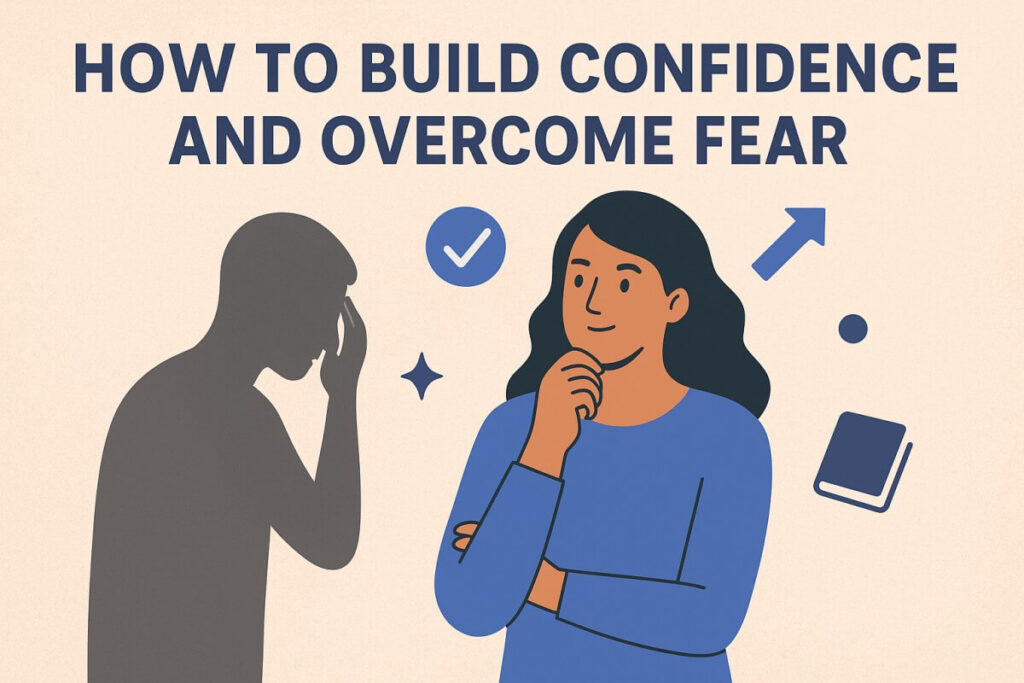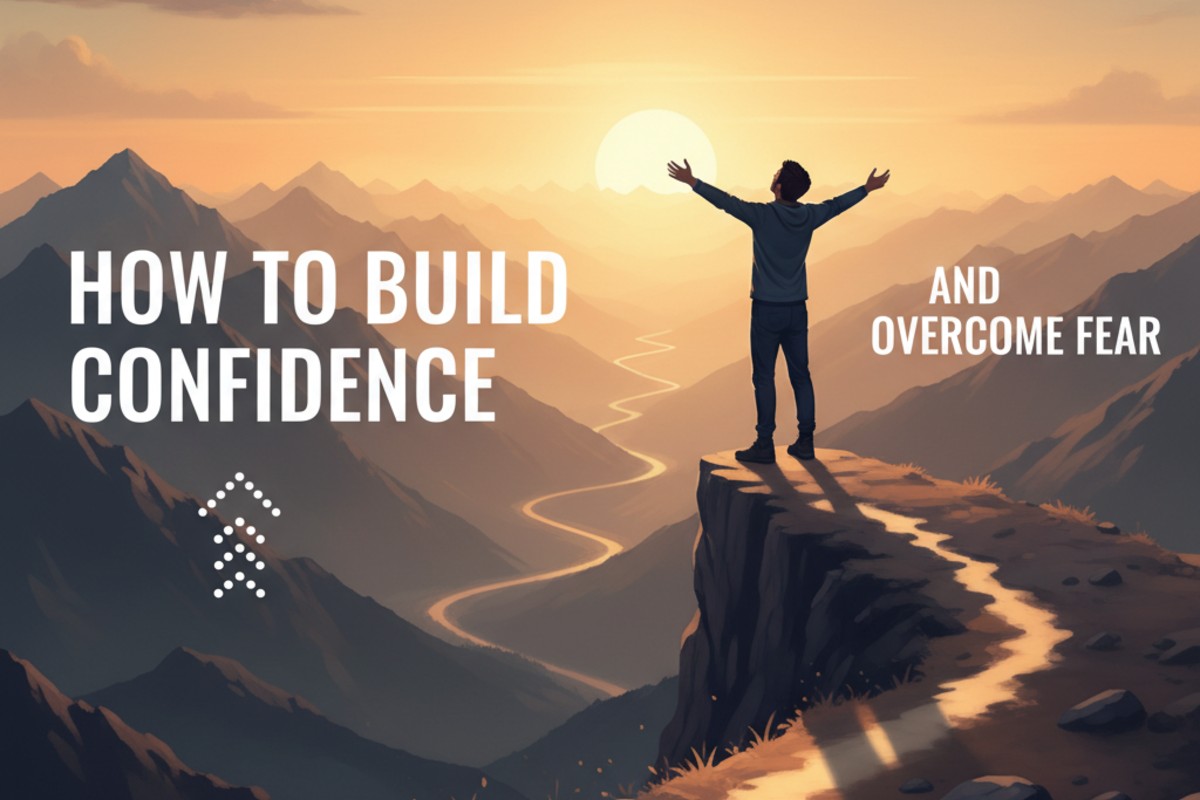Confidence and fear are two sides of the same coin. While fear holds you back, confidence pushes you forward. Building confidence is not about pretending to be fearless, but about learning to face challenges calmly and believing in your ability to handle them. Whether it’s speaking in public, starting something new, or dealing with life’s uncertainties, overcoming fear begins with strengthening your mindset.
Understanding Fear and Self-Doubt
Fear often stems from uncertainty, past experiences, or a lack of self-belief. It is a natural emotion designed to protect us, but when it becomes excessive, it limits personal growth. Self-doubt feeds fear by making you question your worth or abilities.
Recognizing that fear is part of life is the first step. Instead of avoiding it, learn to manage fear and gain control over your thoughts and emotions.

Steps to Build Confidence and Overcome Fear
1. Identify Your Fears
Understand what triggers your fear. Is it failure, rejection, or judgment? Naming the fear gives it less power and helps you handle it logically rather than emotionally.
2. Practice Self-Awareness
Confidence begins with self-awareness. Take time to understand your strengths and weaknesses. Self-awareness helps you set realistic goals and improve where needed without being overly critical of yourself.
3. Develop a Positive Mindset
Negative thoughts are one of the biggest obstacles to confidence. Replace self-criticism with affirmations and positive self-talk. When you start believing in your potential, your actions align with your mindset.
4. Set Small, Achievable Goals
Confidence grows through progress. Setting small goals and achieving them gradually strengthens self-trust. Each small success builds momentum and reduces fear of larger challenges.
5. Focus on Self-Improvement
Continuous learning and self-growth help you feel capable and prepared. Whether it’s improving communication, learning new skills, or maintaining discipline, self-improvement supports long-term confidence.
6. Maintain a Healthy Routine
Physical and mental well-being influence confidence levels. Proper sleep, a balanced diet, and regular exercise help reduce stress and anxiety, making it easier to manage fear and stay calm under pressure.
7. Surround Yourself with Positivity
The people around you influence your thoughts. Stay close to those who encourage growth and inspire you to be better. Avoid environments that make you doubt your worth or abilities.
8. Accept Failures as Learning
Failure is not a sign of weakness; it’s an opportunity to learn. Every mistake brings valuable lessons. By accepting failures and analyzing what went wrong, you develop resilience and emotional strength.
9. Step Out of Your Comfort Zone
Growth never happens in comfort. Taking small, calculated risks helps you adapt to new situations and builds courage. Over time, discomfort turns into confidence.
10. Believe in Progress, Not Perfection
Perfectionism often creates fear of judgment. Focus on consistent improvement rather than flawless performance. Confidence grows when you value effort more than outcome.
Benefits of Building Confidence
- Better decision-making in personal and professional life
- Reduced anxiety and fear in uncertain situations
- Improved communication and social skills
- Higher motivation and goal achievement
- Stronger emotional resilience
Confidence transforms the way you view challenges. Instead of seeing them as obstacles, you start seeing them as opportunities for growth and learning.
Read also: Most Profitable Businesses to Start in 2026
How to Maintain Confidence Long-Term
Confidence is not permanent; it needs to be maintained. Reflect on your progress regularly, celebrate achievements, and keep learning new things. Practice gratitude to stay grounded and avoid comparing yourself to others. Confidence thrives when you focus on your own journey rather than external validation.
FAQs
1. What causes lack of confidence?
Lack of confidence often comes from self-doubt, negative experiences, or fear of failure. It can also develop when individuals compare themselves to others or lack encouragement from their surroundings.
2. How can I overcome fear in daily life?
Face your fears in small steps. Identify the cause, mentally prepare, and approach the situation gradually. Consistent exposure reduces fear over time.
3. Can confidence be learned?
Yes. Confidence is a skill developed through practice, self-awareness, and experience. With patience and persistence, anyone can build it.
4. How does self-esteem affect confidence?
Self-esteem reflects how much you value yourself. Higher self-esteem boosts confidence, while low self-esteem increases fear and hesitation.
5. What are the signs of a confident person?
A confident person maintains eye contact, speaks clearly, makes decisions calmly, accepts feedback positively, and stays composed in challenging situations.
Conclusion
Building confidence and overcoming fear is a gradual process that requires patience and consistent effort. It begins with self-belief, positive thinking, and the courage to take small steps forward. When you accept fear as part of growth and work on your inner strength, confidence becomes your natural state. True confidence is not about being fearless; it’s about moving forward despite the fear.

